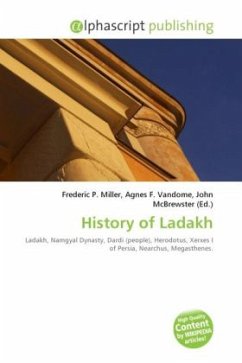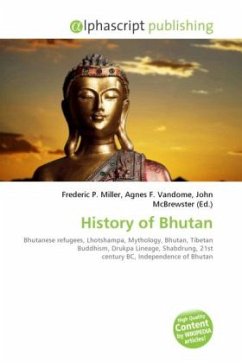High Quality Content by WIKIPEDIA articles! Information on Ladakh before the birth of the kingdom (10th century) is scarce. Ladakh can hardly be considered a separate political entity before the establishment of the kingdom about 950 CE, after the collapse of the early Tibetan empire and the border regions became independent kingdoms under independent rulers, most of whom came from branches of the Tibetan royal family.The earliest layer in the population of Ladakh was probably composed of the Dardi. Herodotus mentions twice a people called Dadikai, first along with the Gandarioi, and again in the catalogue of king Xerxes's army invading Greece. Herodotus also mentions the gold-digging ants of Central Asia, which is also later mentioned in connection with the Dardi people by Nearchus, the admiral of Alexander, and Megasthenes.In the 1st century CE, Pliny the Elder repeats that the Dards are great producers of gold. Herrmann brings arguments to show that the tale ultimately goes back to a hazy knowledge of gold-washing in Ladakh and Baltistan. Ptolemy situates the Daradrai on the upper reaches of the Indus, and the names Darada is used in the geographical lists of the Puranas.
Bitte wählen Sie Ihr Anliegen aus.
Rechnungen
Retourenschein anfordern
Bestellstatus
Storno








